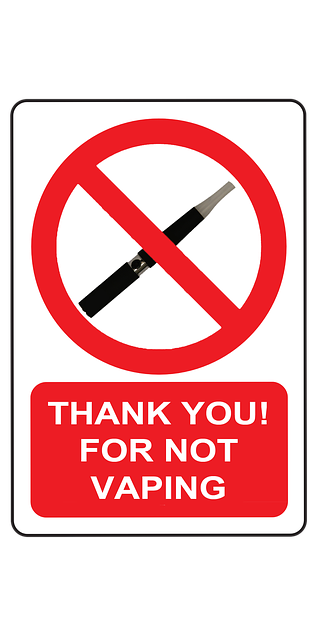Delta 8 THC, a cannabinoid from the Cannabis sativa plant, offers a milder psychoactive effect compared to its more potent counterpart, Delta 9 THC. It's derived from hemp and contains less than 0.3% Delta 9 THC, which makes it federally legal in the U.S. under the 2018 Farm Bill. Delta 8 products, such as edibles, vape cartridges, and topicals, have become popular due to their therapeutic potential for relaxation and pain relief without intense psychoactivity. However, users should be cautious due to individual differences in how they respond to it and the varying legal status across different jurisdictions. It's crucial to purchase from reputable sources to ensure product safety and accuracy in labeling. Consumers should start with low doses, considering their unique sensitivity and body chemistry, especially if they are on other medications that might interact. Safety precautions include secure storage of products and seeking medical advice for individuals with pre-existing health conditions or those who are pregnant or breastfeeding, as the long-term effects are still being researched. Always remember to use Delta 8 THC responsibly and avoid its use before operating vehicles or machinery due to potential impairment.
Delta 8 tetrahydrocannabinol (THC) derived from hemp emerges as a multifaceted compound within the cannabis sativa realm, offering a unique blend of psychoactive effects and therapeutic potential. This article delves into the intricacies of Delta 8 THC, exploring its extraction process from hemp, the legal considerations in its use, and the array of effects it may offer. As we navigate the complexities of this emerging cannabinoid, we’ll also discuss safety considerations and user guidelines to ensure informed consumption. Join us as we unravel the potential benefits and applications of Delta 8 THC within the legal and regulated framework that governs its use.
- Understanding Delta 8 THC: The Basics
- Extraction Process: From Hemp to Delta 8
- Legal Landscape: Compliance and Regulations
- Potential Effects and Uses of Delta 8 THC
- Safety Considerations and User Guidelines
Understanding Delta 8 THC: The Basics

Delta 8 tetrahydrocannabinol (THC) is one of the many cannabinoids found in the Cannabis sativa plant, more commonly known as hemp or marijuana. It’s distinct from its better-known counterpart, Delta 9 THC, in that it contains a double bond at the eighth carbon chain position instead of the ninth. This slight structural difference results in Delta 8 THC having a lower psychoactive potency, providing users with a milder high that is less intense and more clear-headed compared to Delta 9 THC. The effects of Delta 8 can include relaxation, euphoria, and pain relief, making it a subject of interest for those seeking the therapeutic benefits of cannabinoids without the overwhelming psychoactive experience associated with higher doses of Delta 9.
Delta 8 THC is derived from hemp through various extraction processes that isolate and concentrate the compound. Due to the 2018 Farm Bill in the United States, hemp-derived products containing less than 0.3% Delta 9 THC are legal on the federal level, which includes Delta 8 THC as long as it is derived from hemp and not synthesized in a lab. This legal distinction has led to a surge in the availability of Delta 8 products, including edibles, vape cartridges, and topicals, catering to a wide range of consumer preferences and needs. Understanding the nuances between Delta 8 and other cannabinoids is crucial for consumers looking to explore the potential wellness benefits of these compounds. It’s important to approach such products with caution, as individual reactions may vary, and regulatory oversight can differ by jurisdiction.
Extraction Process: From Hemp to Delta 8

Delta 8 Tetrahydrocannabinol (THC) is a psychoactive cannabinoid found in the Cannabis sativa plant, which includes hemp and marijuana. While Delta 9 THC is the most well-known form of THC, Delta 8 THC has garnered attention for its unique effects and legal status. The extraction process of Delta 8 THC from hemp involves several key steps that adhere to strict regulatory guidelines, ensuring the production of a safe and consistent product.
The process begins with the cultivation of hemp, which is legally defined as cannabis containing less than 0.3% Delta 9 THC by dry weight. After harvesting, the hemp undergoes a solvent extraction process to isolate the cannabinoids, terpenes, and other valuable compounds from the plant material. This is typically done using supercritical CO2 or ethanol as solvents due to their efficacy and relative safety. Once extracted, the cannabinoid profile of the hemp is further refined through a series of chemical reactions. A convertible isomer, Delta 8 THC exists in a mixture with other cannabinoids such as CBD (cannabidiol) and CBN (cannabinol). To increase the concentration of Delta 8 THC, a process involving acidic conditions or a catalyst can selectively convert other cannabinoids into Delta 8 THC. This conversion is carefully monitored to achieve the desired level of Delta 8 THC while maintaining product integrity and ensuring compliance with legal standards for THC content. The final product is then tested for potency, purity, and safety before it reaches consumers, providing a legal alternative for those seeking the effects of THC.
Legal Landscape: Compliance and Regulations

Delta-8-tetrahydrocannabinol (Delta 8 THC) is a psychoactive cannabinoid found in the Cannabis sativa plant, including hemp. As of the current regulatory framework, Delta 8 THC derived from hemp is federally legal under the 2018 Farm Bill, which legally distinguishes between hemp and its high-THC cousin, marijuana. The bill defines hemp as cannabis with less than 0.3% delta-9-tetrahydrocannabinol (Delta 9 THC) on a dry weight basis. Delta 8 THC levels are typically much lower than Delta 9 THC, which positions it within the legal parameters set forth by the Farm Bill. However, the regulatory landscape is complex and varies at the state level. Some states have enacted their own laws regarding hemp-derived products, including Delta 8 THC, with varying restrictions or bans. It is imperative for businesses and consumers to stay informed about the specific regulations within their jurisdiction, as compliance is key to avoiding legal pitfalls. The Food and Drug Administration (FDA) has also weighed in, stating that any form of THC, including Delta 8, cannot be legally marketed as a dietary supplement or added to food products. As such, entities involved in the production, sale, or distribution of Delta 8 THC products must navigate these regulations carefully and ensure their practices align with both federal and state laws to maintain legal compliance.
Potential Effects and Uses of Delta 8 THC

Delta 8 THC, a psychoactive cannabinoid found in hemp, shares similar properties with its more well-known counterpart, Delta 9 THC, but with effects that are typically less intense. Users report a range of experiences, from mild euphoria and relaxation to improved mood and heightened sensory perception. The subtle psychoactive effects make Delta 8 an appealing option for those seeking the benefits of cannabinoids without the overwhelming potency associated with Delta 9. It is often used for its potential therapeutic properties, which may include pain relief, anxiety reduction, and appetite stimulation. Additionally, Delta 8 THC’s legal status as a hemp derivative places it in a favorable position for consumers looking to navigate the complex landscape of cannabis legislation. Its effects are subject to individual variation, and users are advised to start with small doses to gauge their response. As research continues, more insights may emerge regarding the full scope of its potential uses and effects.
Safety Considerations and User Guidelines

Delta 8 THC, a cannabinoid found in hemp, shares similarities with Delta 9 THC but with distinct pharmacological properties. Users should approach its consumption with caution as it can induce psychoactive effects. Safety considerations for those using Delta 8 THC from hemp include understanding the legal status in their jurisdiction, as it varies across different states and countries. It’s crucial to purchase products from reputable sources to ensure purity and accuracy of labeling; contamination with potentially harmful substances is a risk when dealing with less regulated markets.
Users are advised to start with small doses to gauge their individual response, as the effects can be unpredictable. It’s important to consider one’s sensitivity, body chemistry, and any concurrent medication that may interact adversely with Delta 8 THC. Avoiding operation of motor vehicles or machinery under its influence is prudent due to potential impairment. Additionally, users should keep it out of reach of children and pets, and consult with a healthcare provider if they have existing health conditions or are taking other medications. Guidelines for responsible use include not exceeding the recommended dosage as indicated on the product label, and refraining from using Delta 8 THC if pregnant or breastfeeding due to a lack of sufficient research on its effects during these periods.
